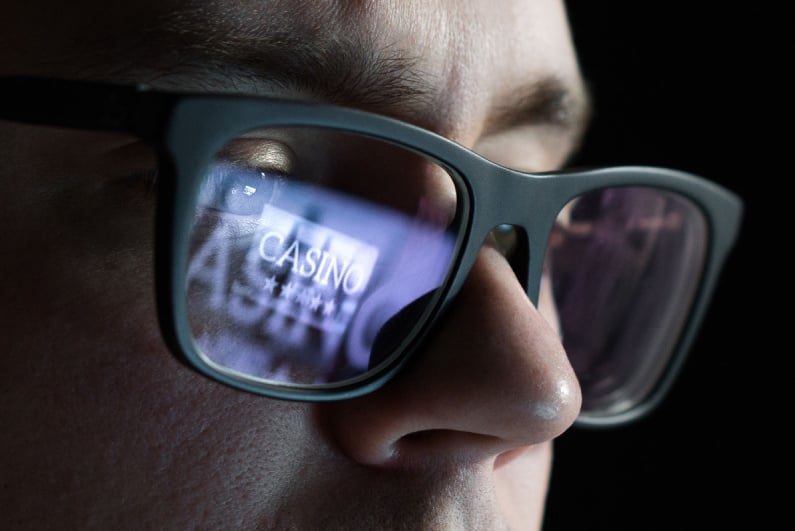The rise of social gaming
While gambling laws have been expanding across the US in recent years, most states still do not allow access to online casinos. Each jurisdiction decides for itself if it wants to expand the scope of gambling offerings. Some only go so far as allowing sports betting, while others have very restrictive rules in place.
For people in the 44 states where legal iGaming is not a reality, many will use social casinos to get their fix. These are free-to-play platforms that allow individuals to enjoy games like blackjack, roulette, and poker on their phones or computer. Users typically get access to a certain amount of virtual tokens for free, which acts as the in-game currency for placing wagers.
social casino operators are getting the best of both worlds
These titles often look, sound, and feel exactly like you would expect real-money online casinos to. The core difference is that while you can spend real money to buy more tokens, you cannot cash out any winnings from social casinos. This means that the social casino operators are getting the best of both worlds – accepting stakes without having to pay out.
A lucrative business
Social casinos have been around for a long time and currently rake in profits across the US. This is because social gaming does not normally fall under the gambling category, so they are able to operate without any major scrutiny from regulators. Operators argue that the free-to-play nature of their offerings means they don’t breach any laws.
Playtika, one of the biggest operators in this space, generated revenue for the 2022 financial year of $2.6bn, contributing to a net profit of $275m. Popular app stores that feature these gaming options also benefit significantly, as they normally claim 30% of in-app earnings.
What’s the issue?
Despite social casinos being touted as harmless fun, they can have some very negative consequences. Over recent years, there have been countless stories of people losing huge sums through these platforms. In Australia, for instance, a woman received a six-and-half-year prison sentence in 2021 after stealing almost AU$1m (US$674,555) from her employer to fund her addiction to social casino games.
social casino games can trigger a desire in vulnerable people to gamble with real money
Researchers have also found that these apps are designed in a way that draws users in, allowing them to experience the thrill of having something on the line while appearing less risky than standard gaming. They offer leaderboard placing and unlockable in-game items as rewards for successful play. However, a study in 2015 showed how playing social casino games can trigger a desire in vulnerable people to gamble with real money.
Gambling regulators usually have strict rules in place for licensees to identify customers showing signs of problematic play. Operators also have to offer certain forms of responsible gambling tools like self-exclusion programs to help vulnerable groups. These requirements are not in place for social casino apps.
Fighting back
Many people who have lost money through these so-called “free-to-play” apps have joined class-action lawsuits. One of the more high-profile recent cases saw a judge approve a settlement on June 1 worth $415m. The plaintiffs claimed that International Game Technology (IGT) and DoubleDown Interactive violated consumer protection provisions and gambling laws in Washington State with DoubleDown Casino. Both defendants did not admit to any wrongdoing.
With this platform, new players would receive 1 million free virtual chips, giving them a chance to try out the various games. People who ran out of tokens could purchase another 300,000 tokens for $2.99. According to the lawsuit, this strategy was “designed to encourage players to get hooked and buy more chips for real money.”
tens of thousands of people bought and lost chips
The plaintiffs outlined how tens of thousands of users bought and lost chips while using the DoubleDown Casino app. The lawyers successfully argued that these people had the right to claim back their losses as the platform violated the state’s ban on commercial casinos.
Class action cases have also come against Google and Apple for supposedly facilitating these types of unlicensed casinos through their app stores, profiting from them as a result.
What next?
Most of the other major lawsuits settled in the US regarding social casino operators have been in Washington State due to its clear definitions of permitted forms of gambling. This includes $38m and $155m settlements in 2020 from Playtika and Big Fish Games, respectively. Attempts by lawmakers in the state to introduce legislation that would exempt social gaming from gambling laws have proven unsuccessful so far.
Lawsuits against social casinos filed in other states like California, Alabama, New York, Ohio, and Georgia have mostly proven unsuccessful to date.
operators themselves might ultimately find it too costly
With more and more people having instant access to these types of apps with the proliferation of smartphones, this is not an issue that is just going to fade away. The legalization of iGaming in more states could quell the interest levels in these unregulated social casino apps, or regulators might start to sit up and take action. There is also the possibility that social casino operators themselves might ultimately find it too costly if class-action settlements continue. Only time will tell.




